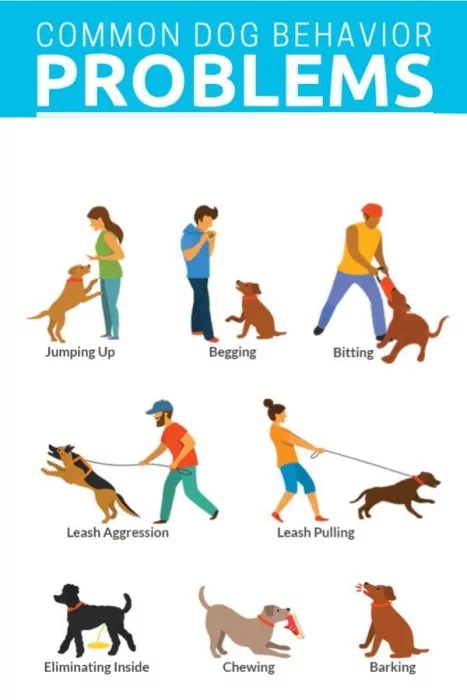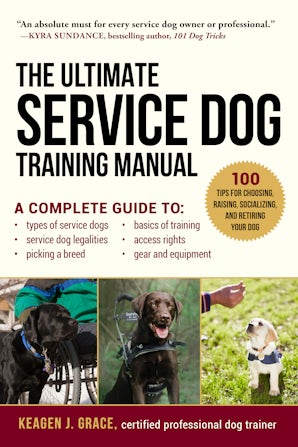Dog Training For Dogs: Proven Techniques to Suppress Unwanted Habits
Dog Training For Dogs: Proven Techniques to Suppress Unwanted Habits
Blog Article
Top Canine Educating Techniques for every single Phase of Your Pet's Life
Reliable pet training is essential at every stage of a dog's life, as each phase provides distinct difficulties and chances for growth. It is important to acknowledge that training should evolve alongside a dog's growth, making sure that techniques remain efficient and appropriate.
Puppy Educating Fundamentals
Puppy training basics prepared for a mannerly adult canine and include several key elements that must not be ignored. The preliminary stage of training concentrates on developing a strong bond in between the young puppy and its proprietor, which is essential for reliable interaction. Socializing is critical; revealing young puppies to numerous environments, individuals, and other animals aids them establish self-confidence and flexibility, reducing the possibility of behavior concerns later in life.
Basic commands, such as sit, remain, and come, develop the foundation of obedience training. Making use of favorable support strategies, such as treats and praise, motivates wanted actions and fosters a favorable understanding experience. Uniformity in commands and training sessions is crucial, as young puppies prosper on routine and structure.
In addition, house training is a necessary facet of puppy training. Developing a normal schedule for restroom breaks and making use of designated locations can assist reduce mishaps and promote excellent routines. Generally, an all-round method to puppy training, integrating residence, socialization, and obedience training, establishes the phase for a well-adjusted adult dog, guaranteeing an unified relationship between the pet and its owner.
Teenage Habits Management
As young puppies develop into teens, their behavior can alter significantly, frequently presenting new challenges for proprietors. This developmental stage, generally occurring between six months and 2 years, is noted by increased power degrees, curiosity, and a burgeoning feeling of self-reliance. Comprehending these adjustments is essential for efficient behavior management.
Adolescents may display rebellious propensities, such as neglecting commands they previously grasped or taking part in harmful habits. Uniformity in training continues to be vital; reinforcing discovered actions through positive support can aid counteract these obstacles. Short, appealing training sessions are vital to keep their passion and emphasis.

Additionally, developing a structured regimen can significantly enhance a teen pet's complacency. Regular exercise is vital to channel their power favorably, decreasing the likelihood of unfavorable habits. By utilizing these techniques, proprietors can successfully browse the intricacies of adolescent actions, promoting a well-adjusted, delighted canine buddy.
Grown-up Pet Obedience Methods

Positive support stays a key method; satisfying excellent habits with deals with, appreciation, or play motivates compliance. Uniformity is crucial; the very same commands and rewards must be made use of by all member of the family to stay clear of confusion.
Integrating training into everyday regimens can also work. Practice commands throughout walks or meal times, permitting training to blend flawlessly into daily life. Taking part in structured tasks, like agility courses or obedience classes, can further improve a canine's skills while giving beneficial socializing chances.
It is very important to recognize that adult pet dogs may likewise show stubbornness or complacency. Adjusting training strategies to keep their rate of interest, such as differing rewards or presenting new commands, can assist receive motivation. Overall, an ongoing commitment to obedience training will cultivate a well balanced and well-behaved their explanation grown-up pet dog.
Elderly Pet Dog Adaptation Methods
Identifying the unique demands of elderly pets is essential for ensuring their convenience and wellness. As pet dogs age, they may experience a decline in flexibility, vision, and cognitive function, necessitating customized adaptation techniques.
First, think about modifying the living setting. Ensure that the home is secure and easily accessible; get rid of barriers and supply non-slip surface areas to prevent drops. In addition, think about using actions or ramps to aid them access their preferred spaces.
Secondly, workout should be adjusted to represent decreased stamina and joint wellness (Dog Training For Dogs). Take part in much shorter, a lot more constant walks, and include gentle activities like swimming, which can be valuable for arthritic joints
Furthermore, psychological stimulation stays important. Usage easy challenge playthings or engage in scent work to keep their minds sharp, while preventing frustrating tasks that might annoy them.
Finally, routine vet check-ups are vital to check health official statement changes and change care routines appropriately. By carrying out these adjustment techniques, you can enhance the quality of life for your elderly pet, ensuring they age beautifully and conveniently.
Lifelong Learning and Enrichment
While pets of every ages gain from learning and mental stimulation, long-lasting enrichment is particularly essential for preserving cognitive health and wellness and psychological wellness in both senior and younger pets. Involving tasks not just improve a canine's top quality of life but additionally reinforce the bond between the canine and its proprietor.
Enrichment can take numerous forms, including interactive playthings, challenge feeders, and scent job, which promote a dog's detects and motivate problem-solving. Regular training sessions, integrating new commands or methods, maintains their minds sharp and promotes a sense of accomplishment. Socializing with other dogs and individuals is just as important, as it helps protect against behavioral concerns and promotes adaptability.
Moreover, including exercise into a pet dog's routine is important for total health and wellness. Tasks like agility training, bring, or long walks provide both psychological and physical stimulation, guaranteeing dogs continue to be satisfied and engaged.
Lastly, take into consideration varying the environment by introducing new areas for walks or playdates. This change can reignite a dog's inquisitiveness and enthusiasm for expedition. Long-lasting knowing and enrichment not just add to a satisfying life get more but also promote a harmonious connection with your canine friend.
Verdict
Efficient pet training methods evolve throughout a pet's life, dealing with the one-of-a-kind demands of each developmental stage. Emphasizing normal psychological stimulation, socializing, and physical exercise fosters a well balanced and satisfying life for pet dogs.
Reliable dog training is essential at every phase of a pet dog's life, as each stage provides distinct obstacles and possibilities for development.Puppy training essentials lay the foundation for a well-behaved adult dog and involve a number of crucial elements that ought to not be overlooked. In general, a well-rounded technique to puppy training, integrating obedience, home, and socialization training, establishes the phase for a well-adjusted adult pet, ensuring an unified relationship in between the pet dog and its proprietor.
Numerous canine proprietors might discover that grown-up pet dogs, while normally more stable in habits than their teen counterparts, still require constant training to keep obedience and great manners.Effective dog training techniques progress throughout a pet dog's life, dealing with the distinct needs of each developing stage.
Report this page